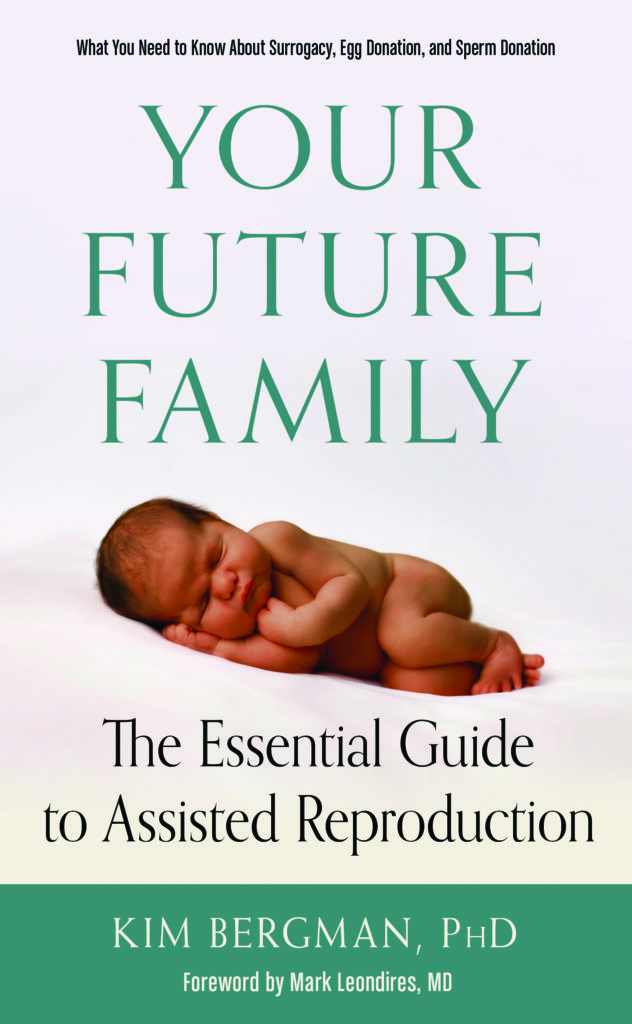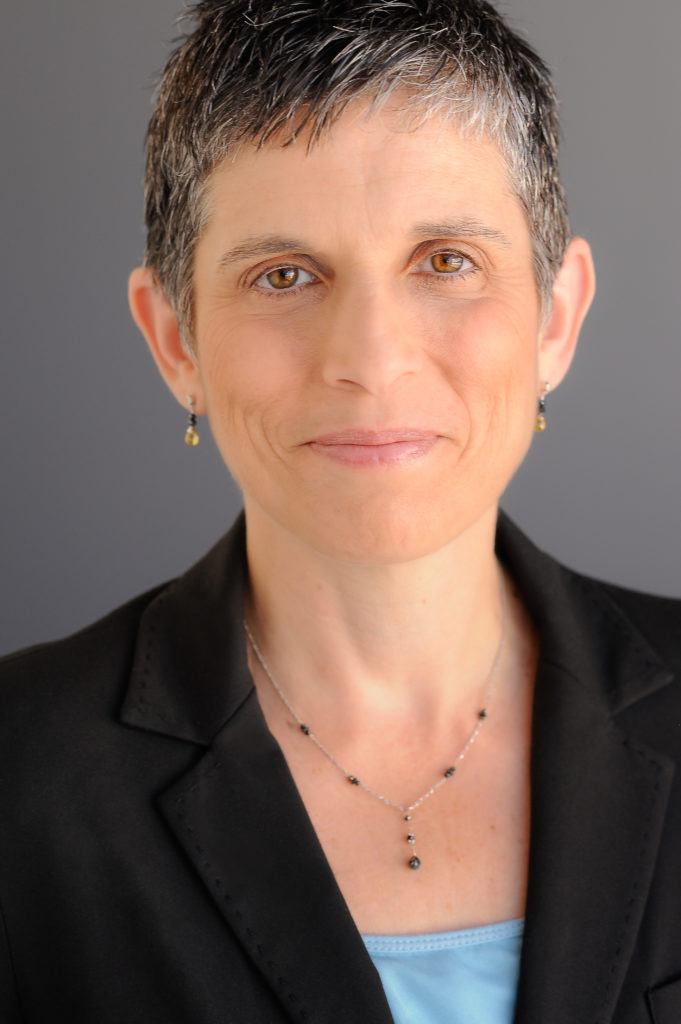Your Future Family: The Essential Guide to Assisted Reproduction

Excerpt from Introduction
I have been helping people become parents my entire career as a psychologist. For over twenty years, I have specialized in the areas of parenting by choice and assisted reproduction at Growing Generations, an agency dedicated to making assisted reproduction easier, safer, and more gratifying for everyone involved. I have worked with all types of families: gay and lesbian couples, heterosexual couples dealing with medical conditions, infertility, and/or an inability to carry a child to term, single people who want to have a child, and even HIV-positive individuals. I have written this book to help anyone who is contemplating having a baby with the help of others. It’s also for family members, friends, employers, neighbors, and anyone else who knows someone who is either contemplating or building a family through third-party assisted reproduction. In particular, grandparents, aunts, and uncles will find this book useful as it both explains the basic process and helps one talk about it with other people.
Society has made great strides in overcoming bigotry, especially recently, but confusion and ignorance still breed hatred. The vast majority of the world’s population is confused by or ignorant about alternative methods of procreation. This can lead to misunderstanding and judgment, which can affect how policies and legislation dealing with assisted reproduction are created. Creating families through ART is beautiful and healthy. It is about love, collaboration, and a desire to raise a child.
I love being a mom. It’s the one thing that I always knew I wanted. I was one of those little girls who played with baby dolls, naming them and planning their futures, and even their children’s futures. When I met and fell in love with my wife, Natalie, my wish to be a mother didn’t go away, even though I knew there was never going to be a man in the picture. I always knew that I would be able to fulfill my dream of becoming a mommy. Thanks to a sperm donor, my wish came true.
When my daughters, Abby and Jenna, were born, it was rare for lesbians to have a baby. My kids are, essentially, the first generation of children born to LGBTQ parents. Natalie and I were in the vanguard. We learned a lot along the way. As a licensed psychologist, I realized what an advantage I had because I understood the importance of open, honest communication, support, trust, and flexibility, and it is this understanding that I bring to my work and that I offer to you in these pages.
Are You Ready?
If you’ve been thinking about becoming a parent, reading this book could flip a switch that pushes you forward toward your goal. I’ll warn you now: once that switch is flipped, there’s no going back. When Natalie and I had our first conversation about possibly starting the process of donor insemination and becoming parents, the switch flipped and we were in. Period. End of discussion. From that moment on, nothing was going to stop us.
When our first insemination attempt didn’t take, we tried again. And when that didn’t work, we tried again. And then we switched donors, thinking maybe different sperm would help. And when that didn’t work, we tried again. And again. And then we switched donors again. We kept at it until finally, at last, I got pregnant with Abby. But never did we doubt that I would get pregnant and that we would be parents. We had decided that no matter what, we were going to be parents. We recommend you to read this articles and book related to what age do boys start talking and their speech development..
I see this same “flipping of the switch” all the time. A person or a couple will come to me for an initial consultation and say, “We’re just looking into this, we’re not ready right now, but maybe in a year or two we will be. At the moment, we’re just gathering information.” Then I’ll get a call a week later because the switch flipped and all systems are go. The urgency kicks in full force, as something that previously felt unattainable now feels within reach. The possibility of parenthood becomes a reality.
You Can Build a Family, No Matter What
There is nothing more rewarding than building a family, and these days almost anyone can do so. The barriers that existed as few as ten or twenty years ago no longer stand in your way. If you are truly committed and you are willing to be patient, your wish can come true. I must warn you, however, that having a baby through assisted reproduction is a marathon, not a sprint. You’ve got twenty-six miles to run, and no two miles are the same. And the marathon starts long before you start the race. You’ve got a whole lot of planning, training, and commitment ahead of time. You have to keep your eyes on the finish line even when things are really tough. Some miles are easy, others are excruciating, some are euphoric, and some are boring. That’s exactly how having a baby through assisted reproduction feels. You plan, you put the pieces together, and you learn all you can about the process. There is a lot of waiting, anticipating, excitement, and sometimes disappointment. It proceeds in fits and starts, and sometimes you wonder if you’ll ever see the finish line. But then, when you finally get there, it’s the greatest thing ever. So, if you think you might be ready to take the first step, read on.
Reprinted with permission from Red Wheel/Weiser LLC., Your Future Familyby Kim Bergman, PhD is available wherever books and ebooks are sold or directly from the publisher at orders@rwwbooks.comor 1-800-423-7087.

Excerpt from Chapter One: Getting Started
From Your Future Family: The Essential Guide to Assisted Reproduction by Kim Bergman, PhD
Marcy and Eric had been trying to have a baby for several years with no luck. They’d been to many specialists and they’d tried everything their doctor suggested, without success. When their doctor finally suggested they explore surrogacy, rather than feeling excitement, they felt sad, ashamed, and hopeless. It was another six months before they called me and asked to talk about surrogacy. I met with them on and off for another six months while we explored their feelings of sadness and loss. Marcy especially needed to dig deep to uncover how she was feeling and to grapple with her excitement about being a mom in the context of what she would have to give up to get there. They eventually decided to proceed, and their surrogate, Annie, got pregnant on the first try. The pregnancy and delivery went smoothly, and Annie delivered a healthy baby girl. Still, every step of their process was fraught with sadness, loss, and regret. Until their baby was in their arms. From that moment on, they focused completely on the joy of raising their daughter. In an instant, the sorrow of their past was a distant memory.
Like Marcy and Eric, you may have some big emotional hurdles to overcome before you begin the process. But with the support of professionals, family, and friends, and by staying focused on the outcome—your future family—you will get there. Sometimes couples embrace the idea of getting help from the start, once they realize it is the only viable option, and even enjoy the process. For others, picking up this book is exciting and joyful, because you are setting a plan in motion to realize your dream of becoming a parent. Regardless of where you are emotionally, there is no shame about needing assistance, no sense of failing at something, but rather a sense of hope and possibility.
Note:
Assisted reproductive technology (ART) is by definition assisted. That means other people are involved in the process of conceiving a child. Before delving into the particulars of the medical options and procedures, and the various pieces you will need to put in place, it’s important to determine if building a family this way is the right path for you.
Different readers of this book will be in very different places emotionally and psychologically. If you’ve tried to conceive a child naturally and haven’t had success, it’s likely you’re feeling some grief about that fact. For you, exploring assisted reproduction may feel as if you’ve failed at something everyone else can do without much trouble. You may feel as if something is deeply and inherently wrong with you, and now you must take this unusual path to become a parent. When you understand that to realize your dream of parenthood you might have to give something up—one or even both of your genetic contributions, and/or the ability to carry and give birth to your baby—the emotional and psychological impact is undeniable. Why me? You might ask. While I can’t answer that question, I can tell you that your feelings are totally valid. And after twenty years of experience helping prospective parents through third-party assisted reproduction, I know that if you truly want to become a parent and you choose assisted reproduction, you will eventually come to embrace it.
There are many, many people who have a child in a nontraditional way, but if you think there is something wrong with or shameful about having a child through assisted reproduction, then you shouldn’t do it. A shred of doubt or uneasiness can grow. You are using exceptional means to bring a life into the world, and you need to be completely sure where you stand. Otherwise your choices can affect your ability to parent, your relationship with your child, and your relationship with your partner if you have one. If you feel embarrassed, or if you have moral or ethical concerns, then it is important to sort those out before you begin. Sometimes just a few conversations with a mental health professional can really help. Often, just talking through all of your feelings, understanding where they come from and having the opportunity to express and process your grief, can help you work through your feelings and then make a powerful choice. If after all of these conversations and research you are still uncomfortable with enlisting the help of others to have your family, you should choose a different option. There are many children in the world in need of loving parents, and fostering and adoption are wonderful ways to build a family. Being aware of where you’re at emotionally, spiritually, and financially is an important first step in the process, and I encourage you to take a moment to check in with yourself and your partner if you have one. This is one of the most important decisions one can make, and the more facts you have about the process, and the more in tune you are with how you feel about your options, the easier it will be to make the decision that’s right for you and your family.
The (Potential) Puzzle Pieces
There are four key players in your assisted reproduction journey:
- A medical specialist, your reproductive endocrinologist
- A reproductive attorney
- A mental health professional specializing in fertility and ART
- A fertility insurance expert
While some hopeful parents choose to go it alone, or go it partially alone (enlisting the help of a few but not all of these people), I would advise against that. For a life decision as major as this one, you’ll want all the support you can get. And it’s very likely that at some point you will need—yes, need—these experts to guide you through the legal, medical, and psychological aspects of third-party assisted reproduction. With that strongly worded advice out there, let’s dive into how these four professionals can help you on your journey.
Reprinted with permission from Red Wheel/Weiser LLC., Your Future Familyby Kim Bergman, PhD is available wherever books and ebooks are sold or directly from the publisher at orders@rwwbooks.comor 1-800-423-7087.

